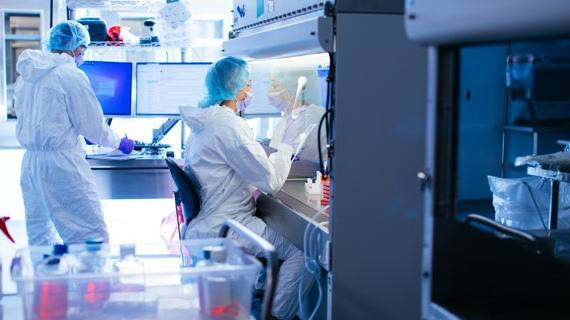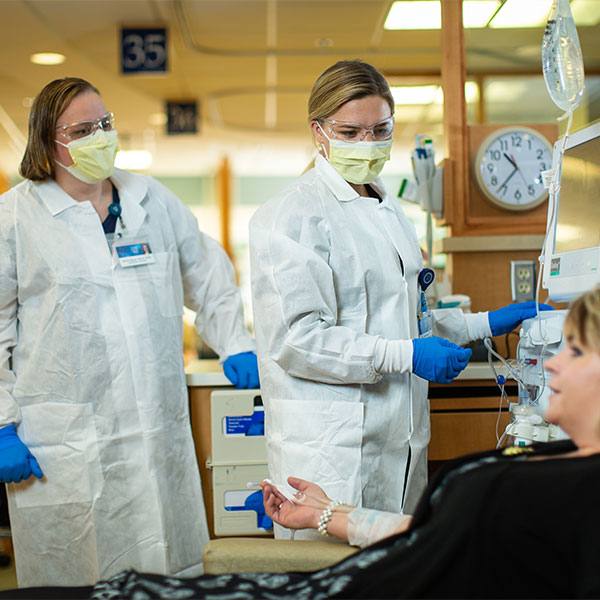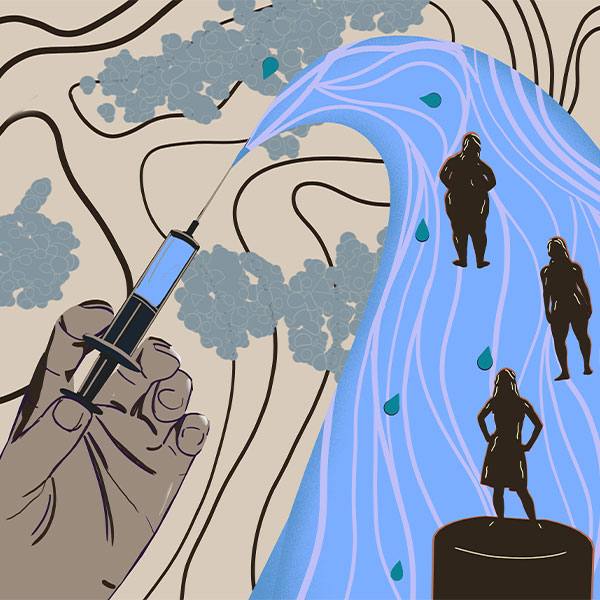
Gene editing, a "molecular scissors" that targets and alters the cellular roots of disease, will be in the spotlight at a Mayo Clinic-sponsored national conference.
Birgit Schultes, Ph.D., will discuss the potential and pitfalls of the emerging gene editing tool CRISPR Cas9 in her keynote address at the RegenBio Summit: Transforming Next-Gen Biotherapeutics. The conference featuring trailblazers in medicine, biotechnology and entrepreneurship will be held Dec. 9 to 11 in Ponte Vedra Beach, Florida.
Dr. Schultes will highlight how leading-edge research in gene editing is advancing new therapies for rare and complex conditions.
"The CRISPR technology can do amazing things. It gives researchers new hope for finding solutions for diseases that we never thought we could treat successfully," says Dr. Schultes. "CRISPR Cas9 was invented in 2012, and just a bit more than a decade later it is already approved for conditions such as sickle cell disease."
Mayo Clinic's Center for Regenerative Biotherapeutics is sponsoring the RegenBio Summit as part of its objective of delivering new biologically-based medicines. The event focuses on bringing biotherapies made from human sources such as blood, cells and tissue to patients around the world. Biotherapeutics have shown potential for targeted healing with few side effects.
"Gene editing technologies may provide new ways to understand and treat complex conditions. This presentation is an opportunity for the next generation of physicians, scientists and healthcare staff to learn from the experts about the newest tools aimed at restoring diseased cells, tissue and organs," says Saranya Wyles, M.D., Ph.D., a dermatologist and associate director for education in Mayo Clinic's Center for Regenerative Biotherapeutics.
CRISPR Cas 9 targets disease-causing genes
Clustered Regularly Interspaced Short Palindromic Repeats — CRISPR Cas9 — is a precise tool used to correct faulty DNA strands within living cells. DNA is the molecular foundation of the human body. CRISPR Cas9 acts as a molecular scissors seeking to cut and correct disease-causing genes in a person's DNA. Researchers are drawn to the tool for its potential to permanently modify genes and restore health.
Dr. Schultes will highlight how researchers are studying ways to apply CRISPR Cas9 gene editing to rare diseases such as amyloidosis, or even more complex conditions, including cancer, rheumatoid arthritis, multiple sclerosis and other diseases triggered by an overactive immune system. Amyloidosis is a protein buildup that can cause organs to malfunction.
Scientific teams are studying whether CRISPR technology could provide bold new treatments that:
- Target and remove genes that cause rare diseases or even cancer.
- Replace faulty genes.
- Super-power a person's immune cells to better recognize and kill cancer cells.
Challenges of gene editing
Researchers have many hurdles to overcome in advancing CRISPR Cas9 to routine clinical care. The main concern is how to target specific cells that need repair without also cutting healthy cells and tissue.
"More research and clinical studies are needed to rule out any kind of risk with gene editing," says Dr. Schultes."
In addition to Dr. Schultes, the other keynote speakers at the RegenBio Summit: Transforming Next-Gen Biotherapeutics will be:
Peter Marks, M.D., Ph.D., director of the Center for Biologics Evaluation and Research at the Food and Drug Administration (FDA), who will talk about regulatory programs to accelerate cell and gene therapies toward FDA approval and the FDA's commitment to approving safe and effective products that address unmet patient needs.
M. Peter Marinkovic, M.D., associate professor of dermatology, Stanford University, who will speak about his pioneering research in an FDA-approved topical gene therapy for autoimmune blistering diseases.
The summit will also feature plenaries, networking events and poster sessions. Visit the summit website to register and to see updates on new speakers and breakout sessions.
###
Related stories:
Mayo Clinic RegenBio Summit 2024 registration opens, keynotes announced
Science Saturday: Orthobiologics can be nature's healing agents







